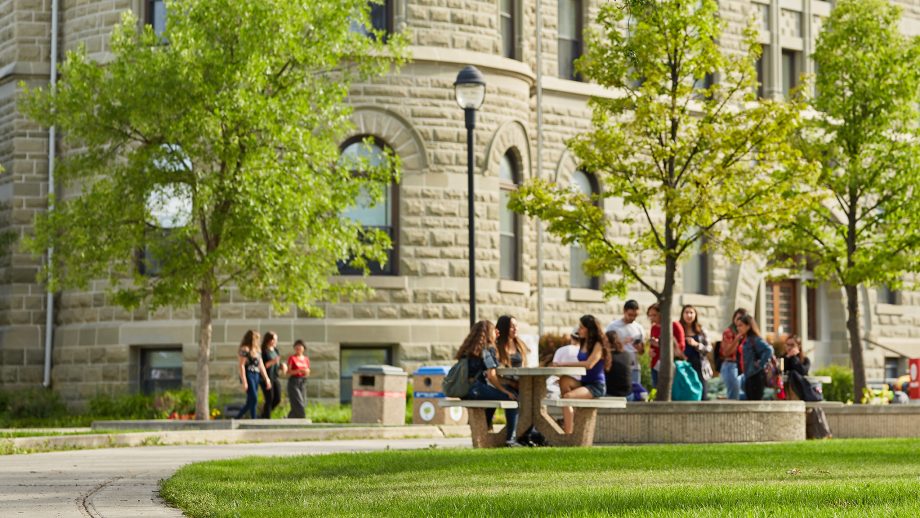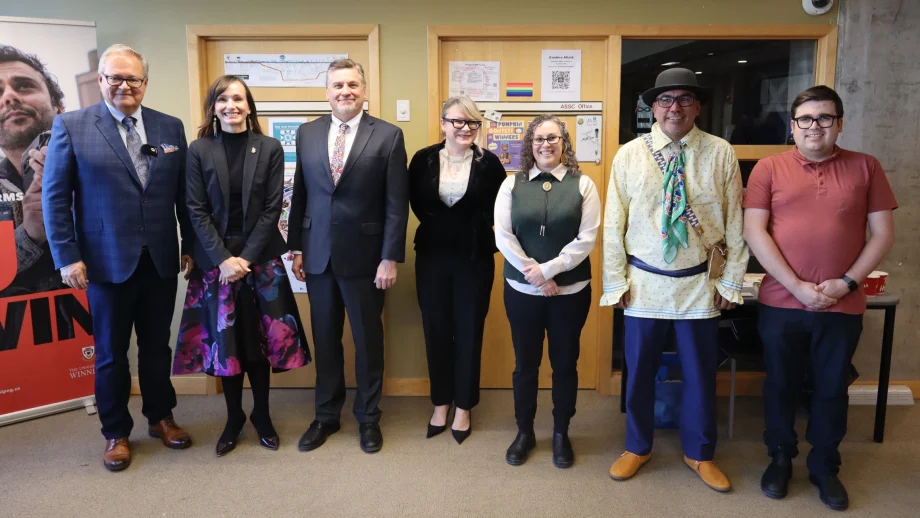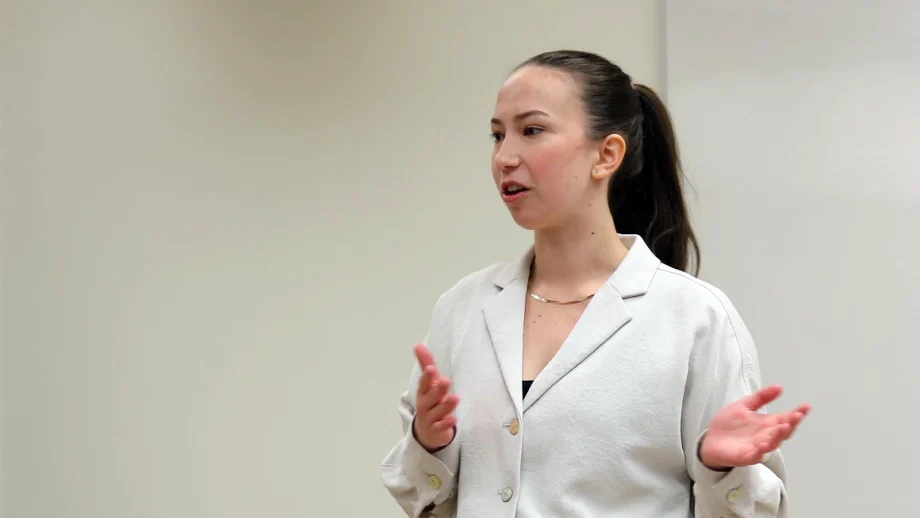February 26 Update: This lecture has been cancelled. It may be rescheduled at a later date.
Guest Speaker Jamie Wilson – Indigenous Economic Development – all welcome
Wednesday, February 28, from 12:30 to 1:30 pm, Leatherdale Hall
A new course is underway at The University of Winnipeg that examines economic development issues facing Indigenous communities in Canada, including such topical issues as natural resource development. Offered in the Faculty of Business and Economics, students learn about economic challenges and opportunities in Indigenous communities and discuss issues such as natural resource development, and examine case studies, for example, business successes in Fisher River Cree Nation, north of Winnipeg.
As part of this course, on Wednesday, February 28, Jamie Wilson, Deputy Minister, Education and Training, will be the guest speaker from 12:30 to 1:30 pm. Everyone is welcome to attend this talk, scheduled to take place in Leatherdale Hall.
Faculty of Business and Economics, a graduate of UWinnipeg, is also the Acting Deputy Minister of Indigenous and Northern Relations and is Chair of the Public Schools Finance Board and CEO of the Healthy Child Manitoba Office. He previously served as Treaty Commissioner of the Treaty Relations Commission of Manitoba and as Deputy Minister of Manitoba Growth, Enterprise and Trade — a position that is primarily responsible for implementing the Government of Manitoba’s ten point economic plan and ensuring results in economic development policy and program decisions.
During his talk at UWinnipeg, Wilson will discuss his views on Indigenous economic development. He is an award-winning environmentalist and survivalist who teaches traditional ways of land navigation and subsistence living. Wilson is passionate about bridging the gap between First Nations and business communities, to help create greater educational opportunities, joint ventures and partnerships.
Students enrolled in the UWinnipeg course are also learning about the role the federal government policies have played and discussing how land, labour and capital can stimulate economic development on and off reserves. The course runs from January 4 to April 21, 2018.
It qualifies as one of UWinnipeg’s Indigenous Course Requirements, and has attracted 32 students from a variety of disciplines and backgrounds.
Indigenous Course Requirement
The University of Winnipeg is one of the first universities in Canada to mandate that all incoming undergraduate students learn about Indigenous peoples and be exposed to Indigenous perspectives and worldviews.
Through the Indigenous Course Requirement, which came into effect in September 2016, UWinnipeg graduates will have knowledge about Indigenous peoples and cultures. A student-led effort on campus, this initiative exemplifies the University’s leadership in responding to the recommendations made in the final report of the seminal Truth and Reconciliation Commission.
Students may choose from a number of three credit-hour courses in which the greater part of the content is local Indigenous material — derived from or based on an analysis of the cultures, languages, history, ways of knowing or contemporary reality of the Indigenous peoples of North America.





